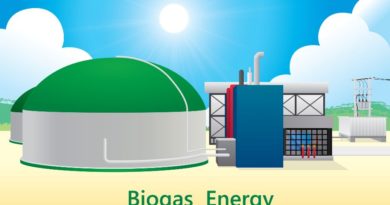JPMorgan Commits $200 Bn to Facilitate UN SDGs and Green Initiatives
JPMorgan Chase is taking additional steps to address climate change and further promote sustainable development through a USD 200 billion commitment

In 2017, JPMorgan Chase made two sustainability commitments: to facilitate USD 200 billion in clean financing by 2025 and source renewable energy for 100 percent of its global power needs by 2020. And that firm has reported that both of these goals are expected to be reached by the end of 2020. Now, the financing institution is taking additional steps to address climate change and further promote sustainable development.
This year, it has committed to facilitate USD 200 billion to advance the objectives of the United Nations Sustainable Development Goals (SDGs), including USD 50 billion toward green initiatives that also fulfill the 2017 clean financing target. This new commitment is intended to address a broader set of challenges in the developing world and developed countries where social and economic development gaps persist. These efforts will be focused on the following objectives:
Green: Supporting climate action, clean water and waste management;
Social: Increasing access to housing, education and healthcare; and
Economic Development: Advancing infrastructure, innovation and growth.
The firm aims to increase its sustainable development financing commitment each year. To support the USD 200 billion effort, the firm is expanding its capacity and capabilities by:
- Launching the J.P. Morgan Development Finance Institution, which focuses on scaling up finance for developing countries;
- Establishing an Environmental Social and Governance (ESG) Solutions group to advise clients on reducing their carbon emissions and respond to increased interest in ESG investing;
- Assembling a new Energy Transition Team to provide strategic and financial advice to corporate clients on M&A transactions that support their carbon optimization objectives; and
- Investing in ESG expertise, including publishing ESG research and creating ESG fixed income indices.
The firm has also announced that it is working with Business Roundtable and other trade organizations on market-based policy solutions to address climate change, drive clean energy innovation and protect underserved communities.
Furthermore, to support the market demand for and transition to cleaner sources of energy, the firm is expanding financing restrictions on certain activities to include:
- Not providing lending, capital markets or advisory services to companies deriving the majority of their revenues from the extraction of coal, and by 2024, phasing out remaining credit exposure to such companies;
- Not providing project financing or other forms of asset-specific financing where the proceeds will be used to develop a new, or refinance an existing, coal-fired power plant, unless it is utilizing carbon capture and sequestration technology; and
- Not providing project financing or other forms of asset-specific financing where the proceeds will be used for new oil and gas development in the Arctic.
Source: saurenergy.com



